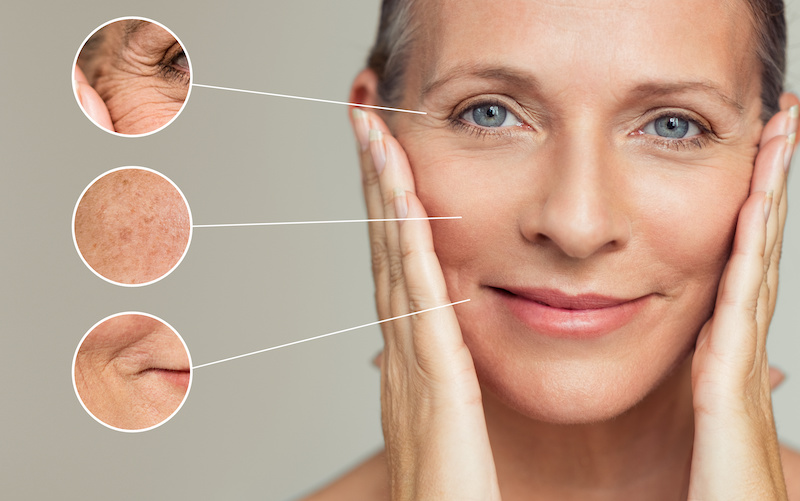The most common forms of skin aging are amongst others the following:
#1) Loss of collagen, elastin and hyaluronic acid; #2) Breakdown of the epidermal barrier; #3) Decreased elasticity and water-holding capacity as well as an increase in transepidermal water loss (TEWL); #4) Altered skin pH levels; #5) Enlarged, coarse pores; and #6) Accelerated skin aging due to damage from ultraviolet (UV) light.
MEDICATIONS CAN MAKE IT WORSE
The use of medications can make these problems worse, especially the accumulation of free radicals caused by some medications. In fact, research has shown that certain medications are among the top contributors to free-radical levels in the body.
A study published by the University of Maryland Medical Center found that certain medications, including chemotherapy drugs, antihistamines, birth control pills and diuretics can cause damage to collagen. For instance, an increased risk for scoliosis has been linked to excess use of diuretics, which can result in water retention.
ANTIOXIDANTS MATTER
The good news is that antioxidants added to your daily skincare regimen can help fight the damage caused by medications and protect your skin from further damage. Antioxidants are non-toxic compounds that work by scavenging for and destroying free radicals. They are found in many fruits and vegetables, as well as in some supplements.
Look for antioxidants that include:
– Alpha lipoic acid (ALA)
– Coenzyme Q10 (CoQ10)
– Resveratrol
– Pycnogenol
– Vitamin C (ascorbic acid)
– Vitamin E (tocopherol)
Also, consider adding skin treatments to your daily routine that contain antioxidants to help reduce the effects of medications. Look for serums or ampoules to use under your moisturizing cream or within your antiaging skin care routine.
